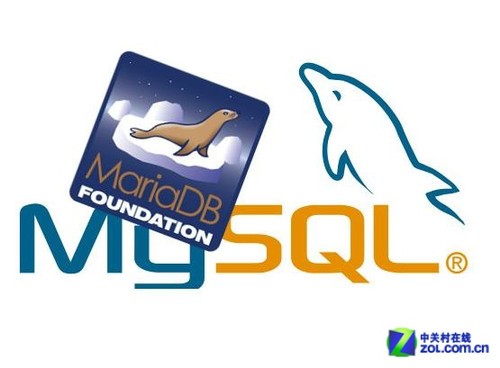Recommended 10 mysql master-slave architectures
Recently when deploying the MySQL master-slave replication architecture, I encountered "Last_IO_Error: Fatal error: The slave I/O thread stops because master and slave have equal MySQL server UUIDs; these UUIDs must be different for replication to work." This error message. That is, the same UUID is used in the master-slave architecture. Check the server_id system variable, it is already a different setting, what is the reason? What follows is a detailed description. 1. Error message mysql> show slave staus; Last_IO_Error: Fatal error:&nb
1. slave have equal MySQL server UUIDs

Introduction: Recently when deploying the MySQL master-slave replication architecture, I encountered "Last_IO_Error: Fatal error: The slave I/O thread stops because master and slave have equal MySQL server UUIDs; these UUIDs must be different for replication to work." this error message. That is, the same UUID is used in the master-slave architecture. Check the server_id system variable, it is no longer
2. Use Innobackupex to quickly build (repair) MySQL master-slave architecture
Introduction: There are many ways to build MySQL master-slave. The traditional mysqldump method is one of the choices for many people. But for larger databases, this method is not an ideal choice. Use Xtrabackup to quickly and easily build or repair mysql master-slave architecture. This article describes using innobackupex to quickly build or repair a master-slave architecture. For reference.
3. Use innobackupex to build mysql master-slave architecture based on the slave library

Introduction: Using a relatively short length, detailed analysis, pseudo code, code and animation, we introduce quick sort and heap sort in detail, and analyze the algorithm ideas and complexity. Worth a look
4. Building gtid master-slave based on mysqldump
Introduction: When implementing the MySQL master-slave architecture During the process, you can use the mysqldump method to build the master-slave. Mysqldump has generated GTID related information during the backup process, that is, these GTIDs can be skipped. For unskipped GTIDs, the IO thread will copy them to the slave server and be executed by the SQL thread. This article mainly demonstrates how mysqldump builds mysql master-slave in GTID mode.
5. MySQL GTID error handling summary

Introduction: MySQL GTID is a product evolved on the basis of traditional mysql master-slave replication, which uses UUID plus transaction ID to ensure the uniqueness of each thing. This method of operation means that we no longer need to care about the so-called log_file and log_Pos, but simply tell the slave library which server to find the main library from. It simplifies the master-slave setup and failover process, and is safer and more reliable than traditional replication. Since GTIDs are continuous without holes, when data conflicts occur in the master-slave library, they can be skipped by injecting empty things. This article mainly describes the error handling method of GTID master-slave architecture.
6. mysqldump quickly builds a specific library master-slave architecture (GTID)

Introduction: For a MySQL database with a small amount of data to build a master-slave architecture, it is a good choice to use the mysqldump tool to implement it. Combined with the MySQL GTID feature, it makes high availability a breeze. This article is a supplement to building gtid master-slave based on mysqldump. It mainly introduces the implementation of GTID master-slave based on multi-repository level, that is, not the entire instance level. The following is a detailed description and examples of this article.
7. MySQL automatic failover tool--mysqlfailover

Introduction: mysqlfailover is an important high-availability command included in the MySQL utilities toolkit, which is used to perform health detection on the master-slave replication architecture and implement automatic failover. It will regularly detect the health status of each node at specified intervals. Once it captures that the master node is unavailable, it will trigger failover-related actions and automatically perform failover to the best slave server at the moment. At the same time, other slave nodes in the entire master-slave architecture will point to the new master node, automatically completing the master-slave topology update.
8. Solution to MySQL master-slave replication inconsistency
Introduction: Basically, for a slightly larger website, MySQL master-slave replication will be configured. On the one hand, the master-slave of MySQL is used to separate the reading and writing of the database. On the other hand, the stand-alone backup of MySQL itself is not very strong. Generally, the master-slave architecture is used to perform data backup on the slave.
9. Major failure caused by inconsistency between master and slave data! Please pay attention!

Introduction: Fault description: Master-slave architecture, after the master went down, it switched to the slave, and the result was from A lot of data was lost (the data consistency was not verified before the downtime). There was no delay in synchronization at that time. When the user logged in, it could not be verified in the database. The result was
10. Redis master-slave automatic failover

##Introduction: There is a problem with the persistence of the Redis master-slave architecture. That is to say, the conclusion of the previous test is that persistence needs to be configured on the main instance to ensure that data is not lost across instances. In this way, the main instance will inevitably
in the process of persisting data to the hard disk. [Related Q&A recommendations]:
mysql master-slave architecture, what should I do if the master server fails?
The above is the detailed content of Recommended 10 mysql master-slave architectures. For more information, please follow other related articles on the PHP Chinese website!

Hot AI Tools

Undresser.AI Undress
AI-powered app for creating realistic nude photos

AI Clothes Remover
Online AI tool for removing clothes from photos.

Undress AI Tool
Undress images for free

Clothoff.io
AI clothes remover

AI Hentai Generator
Generate AI Hentai for free.

Hot Article

Hot Tools

Notepad++7.3.1
Easy-to-use and free code editor

SublimeText3 Chinese version
Chinese version, very easy to use

Zend Studio 13.0.1
Powerful PHP integrated development environment

Dreamweaver CS6
Visual web development tools

SublimeText3 Mac version
God-level code editing software (SublimeText3)

Hot Topics
 1382
1382
 52
52
 Explain InnoDB Full-Text Search capabilities.
Apr 02, 2025 pm 06:09 PM
Explain InnoDB Full-Text Search capabilities.
Apr 02, 2025 pm 06:09 PM
InnoDB's full-text search capabilities are very powerful, which can significantly improve database query efficiency and ability to process large amounts of text data. 1) InnoDB implements full-text search through inverted indexing, supporting basic and advanced search queries. 2) Use MATCH and AGAINST keywords to search, support Boolean mode and phrase search. 3) Optimization methods include using word segmentation technology, periodic rebuilding of indexes and adjusting cache size to improve performance and accuracy.
 How do you alter a table in MySQL using the ALTER TABLE statement?
Mar 19, 2025 pm 03:51 PM
How do you alter a table in MySQL using the ALTER TABLE statement?
Mar 19, 2025 pm 03:51 PM
The article discusses using MySQL's ALTER TABLE statement to modify tables, including adding/dropping columns, renaming tables/columns, and changing column data types.
 Can I install mysql on Windows 7
Apr 08, 2025 pm 03:21 PM
Can I install mysql on Windows 7
Apr 08, 2025 pm 03:21 PM
Yes, MySQL can be installed on Windows 7, and although Microsoft has stopped supporting Windows 7, MySQL is still compatible with it. However, the following points should be noted during the installation process: Download the MySQL installer for Windows. Select the appropriate version of MySQL (community or enterprise). Select the appropriate installation directory and character set during the installation process. Set the root user password and keep it properly. Connect to the database for testing. Note the compatibility and security issues on Windows 7, and it is recommended to upgrade to a supported operating system.
 When might a full table scan be faster than using an index in MySQL?
Apr 09, 2025 am 12:05 AM
When might a full table scan be faster than using an index in MySQL?
Apr 09, 2025 am 12:05 AM
Full table scanning may be faster in MySQL than using indexes. Specific cases include: 1) the data volume is small; 2) when the query returns a large amount of data; 3) when the index column is not highly selective; 4) when the complex query. By analyzing query plans, optimizing indexes, avoiding over-index and regularly maintaining tables, you can make the best choices in practical applications.
 How do I configure SSL/TLS encryption for MySQL connections?
Mar 18, 2025 pm 12:01 PM
How do I configure SSL/TLS encryption for MySQL connections?
Mar 18, 2025 pm 12:01 PM
Article discusses configuring SSL/TLS encryption for MySQL, including certificate generation and verification. Main issue is using self-signed certificates' security implications.[Character count: 159]
 What are some popular MySQL GUI tools (e.g., MySQL Workbench, phpMyAdmin)?
Mar 21, 2025 pm 06:28 PM
What are some popular MySQL GUI tools (e.g., MySQL Workbench, phpMyAdmin)?
Mar 21, 2025 pm 06:28 PM
Article discusses popular MySQL GUI tools like MySQL Workbench and phpMyAdmin, comparing their features and suitability for beginners and advanced users.[159 characters]
 Difference between clustered index and non-clustered index (secondary index) in InnoDB.
Apr 02, 2025 pm 06:25 PM
Difference between clustered index and non-clustered index (secondary index) in InnoDB.
Apr 02, 2025 pm 06:25 PM
The difference between clustered index and non-clustered index is: 1. Clustered index stores data rows in the index structure, which is suitable for querying by primary key and range. 2. The non-clustered index stores index key values and pointers to data rows, and is suitable for non-primary key column queries.
 How do you handle large datasets in MySQL?
Mar 21, 2025 pm 12:15 PM
How do you handle large datasets in MySQL?
Mar 21, 2025 pm 12:15 PM
Article discusses strategies for handling large datasets in MySQL, including partitioning, sharding, indexing, and query optimization.




